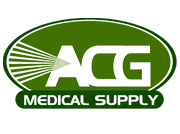Deep vein thrombosis (DVT), a highly unsafe condition which develops when a blood clot forms in a deep vein of your body. Blood clots can affect anyone, regardless of age or gender. These blood clots are formed in one of the big veins, usually in the arm, pelvis, lower leg, or thigh and can completely or partially hinder blood circulation in the veins.
What Is Deep-Vein Thrombosis Awareness Month?
Blood clots are estimated to affect 900,000 Americans annually, although they are frequently underdiagnosed. Every year in March, Deep-Vein Thrombosis Awareness Month is held in the United States where the public health campaign seeks to develop a deeper understanding on blood clot awareness. If a DVT is left untreated, a piece of the clot may separate and go to the lungs, where it may restrict airflow and result in a condition known as a pulmonary embolism (PE).
According to the American Heart Association, blood clots, or DVT as it is more often known, affect up to two million Americans each month. Knowing the warning signs and symptoms of a blood clot will help you decide when to seek medical attention.
What Are the Primary DVT Symptoms?
Swelling, discoloration, pain, tenderness, skin redness, heaviness, or unusual warmth near the blood clot are few of the common signs of DVT. And several conditions, including muscle strain, skin inflection, and vein inflammation, share indications of D.V.T., making the diagnosis even more challenging.
Identifying Causes and Risk Factors
Several factors or elements may contribute to a DVT or may increase the risk of it over time. Here are few of them:
• Limited Mobility: People with restricted mobility have a higher risk of getting affected by DVT. When you sit for a long time, blood can build up in the legs at one specific area. It can halt the blood circulation and can certainly lead to the formation of a clot.
• Injury or Surgery: Previous injuries can also be one of the major DVT causes to develop the risk of venous thrombosis in a human body. The damage to the blood vessel wall can block the blood flow in the veins, resulting in a blood clot. After surgery, bed rest with minimal mobility may potentially raise your chance of developing a blood clot.
• Smoking: If you smoke regularly, put that cigarette out right away! Smoking has an impact on blood clotting and flow, which adds to the risk of DVT. According to the National Heart, Lung and Blood Institute, smoking has a substantial and detrimental effect on the heart and blood vessels. The nicotine in cigarettes makes blood platelets stickier, which can cause them to clump together.
• Obesity: Another significant risk indicator for DVT in both men and women is obesity. Being overweight can put more pressure on the legs and pelvis, which can cause stagnation of blood in the vein. Obese people in the US have a nearly twofold increased risk of DVT, according to studies.
Suggested Deep Vein Thrombosis Treatments
The DVT treatment focuses on preventing the clot from spreading throughout the body. This can reduce your chance of developing additional clots and possibly prevent a pulmonary embolism.
• Blood-Thinning Medications:
You might be given blood-thinning medicine by your doctor. This medication makes it difficult for your blood to clot and potentially keep existing clots as small as possible.
• Medical Supplies:
Using medical compression stockings can minimize swelling and may reduce your risk of getting clots if you have a high risk of DVT. Your doctor could advise you to wear these all the time. You can find comfortable and durable compression stockings at ACG Medical Supply.
• Move More Frequently:
If you sit for a long period with your feet in the same posture, blood will begin to collect in one area of the body and may lead to clogs. You can keep your legs elevated utilizing leg rest or lifter from ACG Medical Supply. Regular walks using our walkers can significantly help you to increase your blood flow.
Concluding Thoughts…
DVT is one such serious condition with a high mortality risk. DVT awareness month is all about raising awareness about the issue, causes, symptoms, and self-prevention techniques. Please call your doctor as soon as you notice any of the symptoms. Also, your doctor could advise using medical equipment that you can purchase from ACG Medical Supply to lower the risk of DVT.

